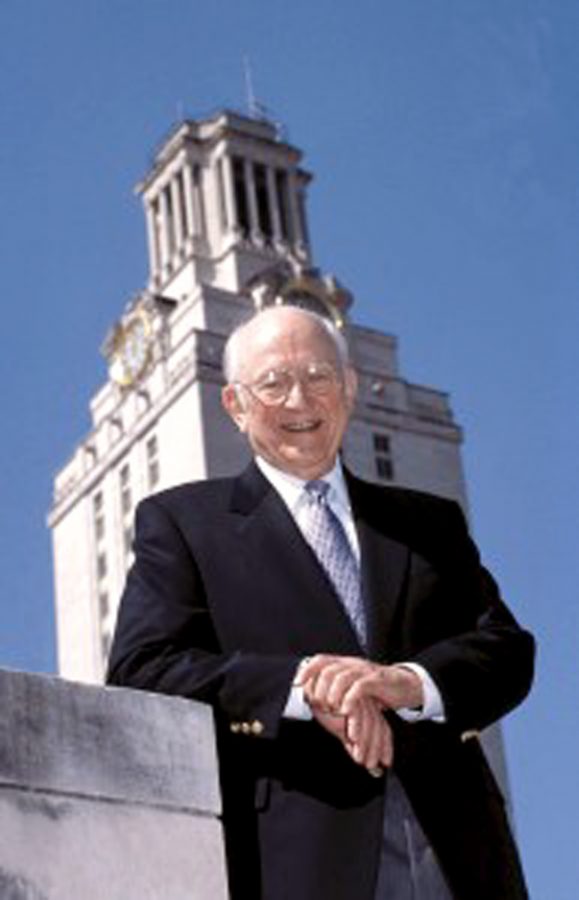With classes beginning Wednesday, the UT campus will continue to mourn the death of former University President William Livingston.
Livingston died Aug. 15 at the age of 93. He began his career at UT as a government professor in 1949 and worked in various teaching and administrative roles in the following 60 years. His positions included chair of the government department, vice chancellor of academic programs and vice president and dean of graduate studies. He held the position of acting president of the University in 1992. More anecdotally, he is known as the voice of TEX — the 1990s telephone registration system.
Livingston’s memorial service will be held Sept. 4. Steve Livingston, Bill’s son, said the University offered the use of the LBJ Auditorium for which the family was grateful. President William Powers Jr. is one of the scheduled speakers at the service.
“Bill Livingston embodied all the best qualities of a university leader: erudition, eloquence, sweeping vision, warmth and good humor,” Powers said in a statement. “The University of Texas is a better place for his lifetime of service. He was an inspiration to generations of Longhorns, and we all will miss him.”
Livingston served in World War II in the U.S. Artillery and was injured in the Battle of the Bulge in December of 1944. He earned the Bronze Star and Purple Heart for his service, according to Steve.
Government professor Gary Freeman said he had known Livingston as a colleague and a friend since 1976 when Freeman first joined the department at UT. In his first interactions with Livingston, Freeman said he noticed his colleague’s friendliness, frankness and plainspoken manner.
“He was always trying to get on the same wavelength as his students,” Freeman said. “He could be a little goofy, a little funny and even a little outrageous.”
Freeman said Livingston had a remarkable mastery of the English language and would often impress his students with his broad vocabulary. Encouraging his students to be better writers proved to be a central part of Livingston’s teaching philosophy, and he would give many writing assignments to his students. He enjoyed reading his students’ works and would write detailed and thoughtful notes on their essays.
“[Livingston] had beautiful handwriting,” Freeman said. “He would write these exquisite comments on his students papers.”
In a 2009 article written to graduates of the government department, Freeman spoke of Livingston’s legacy.
“Livingston has been an exemplar of loyalty and an unwavering proponent of research and education, while insisting that all involved in higher education strive for and attain excellence,” Freeman wrote. “He lived these principles, instilling them in this department and this University, and we like to think that you, graduates of this department, are the better for it.”















